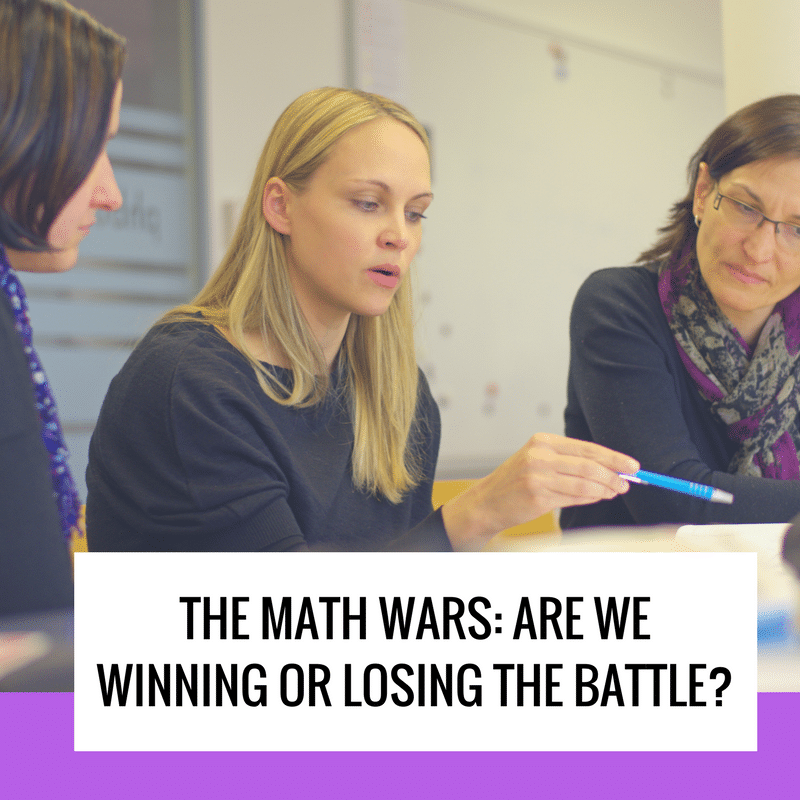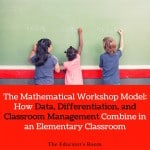The math wars began in the 1990’s in California. At that time reforms were being made to mathematics curriculum for high school students which focused on moving from concrete instruction to abstract mathematical thinking. Many of the reform programs were being funded by the National Science Foundation (NSF) in the hope that more students would become interested in taking higher level math classes.
The reform programs had barely gotten off the ground when backlash began. During this phase of the math wars, the backlash came from several mathematics professors who taught at some of California’s most renowned universities. Their issue was that the reform programs were teaching “fuzzy” math because they did not adhere to the traditional teaching of mathematics. The anti-reform professors believed that teaching the algorithm and solving problems was all that was necessary to teach mathematics. Many were so sure that they were correct that they opposed changes to state mathematics standards even though there were statistics showing how poorly many students performed in mathematics classes.
I first learned about the math wars while training to use a relatively new math program (College Preparatory Mathematics aka CPM) to teach algebra to my eighth graders. CPM had been written by a group of college professors and teachers who wanted more students to be able to dialogue about the math they were learning and hopefully enroll in more advanced math classes in high school. Students were taught to solve problems in a group transitioning from concrete learning to more abstract algorithms. Program units were rooted in the real world, so that students could see how math was linked to their lives. Students were taught to explain how they found their answers in the group or during class presentations thus enabling everyone to see a variety of solutions for each problem.
The program worked so well with my students that I decided to become a teacher leader and train teachers new to the program. The teacher leaders met every year in summer institutes run by the authors of the program to receive updates and to share classroom experiences. We were told about the math wars at one of these trainings as a heads up to what we might encounter when training teachers new to the program.
You see the math wars are basically a disagreement between what I refer to as “math traditionalists,” those who were able to easily learn math by learning an algorithm and solving problems, and mathematics instructors who know from classroom experience that not all of their students could succeed with traditional instruction. The information about the original math wars was useful when leading workshops as there was inevitably someone in the training who was a traditionalist.
[bctt tweet=”Traditionalist math professors continue to support the teaching of algorithms only.” username=””]
The math wars continue to this day. Traditionalist math professors continue to support the teaching of algorithms only. Math education professors are more likely to support reform measures that teach more concrete concepts followed by constructing the algorithm so that understanding takes place. For information about a recent episode of the math wars click here.
Common Core has brought a new set of issues to the table in this decades-old battle. I will deal with that part of the problem in another article soon.
[bctt tweet=”We are the ones who possess the data and classroom observations to know what our students need” username=””]
To conclude, I would like to suggest that the missing piece in this entire discussion is that K-12 classroom teachers are not being asked for input on any regular basis. We are the ones who possess the data and classroom observations to know what our students need but we are not being asked for that information. Instead, too many decisions on what mathematics to teach is based on standardized tests produced by those who have no experience in a real classroom.




